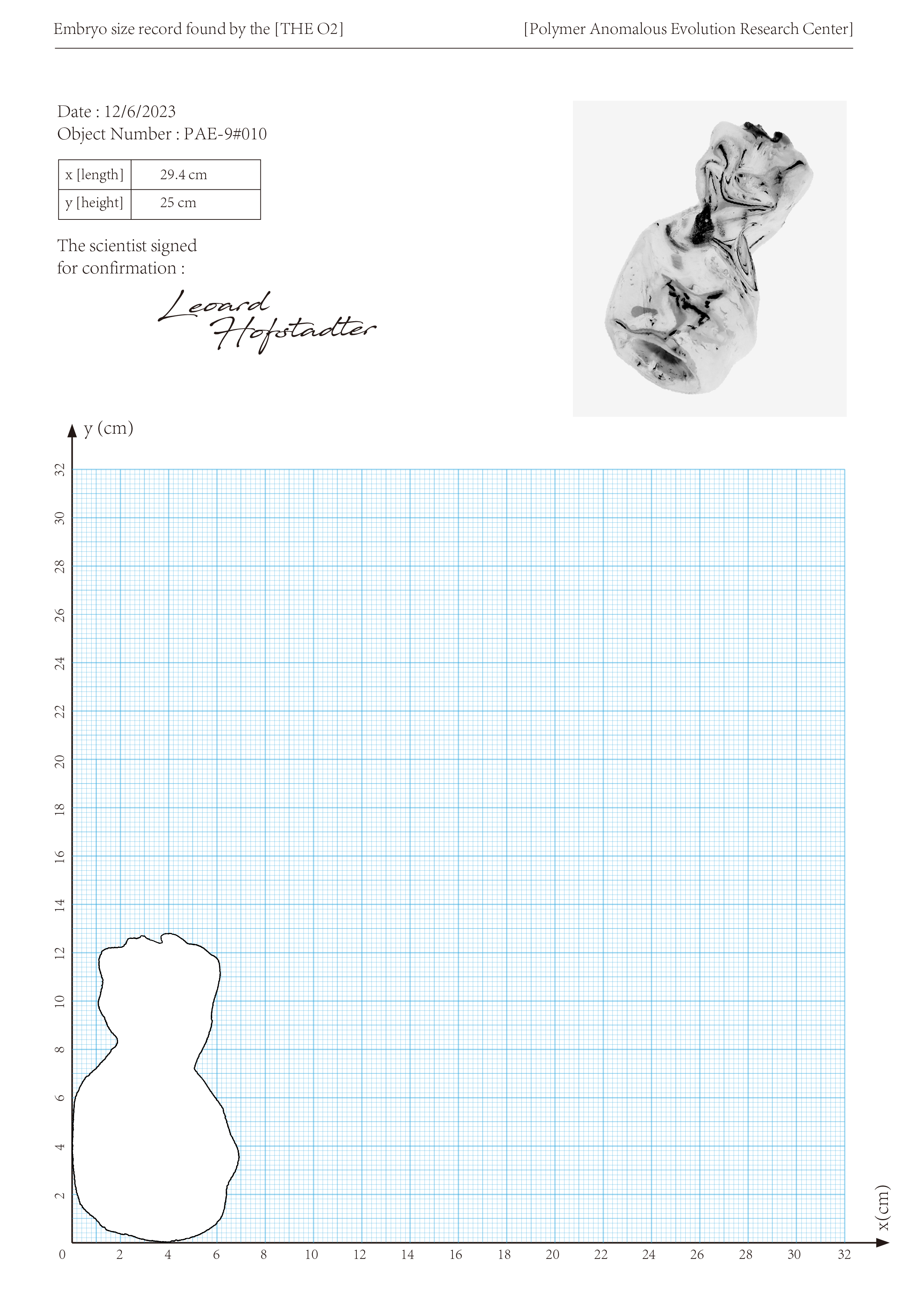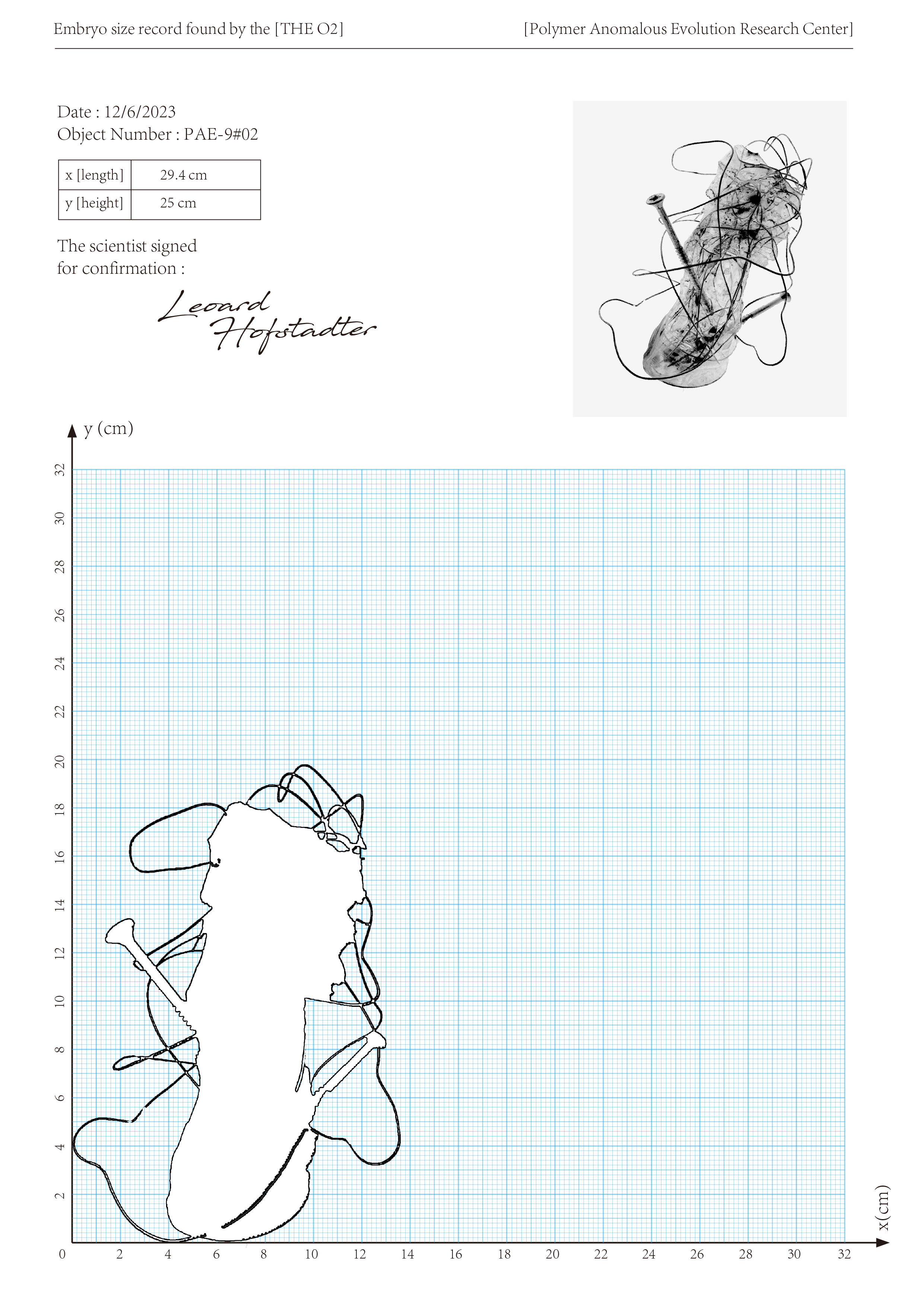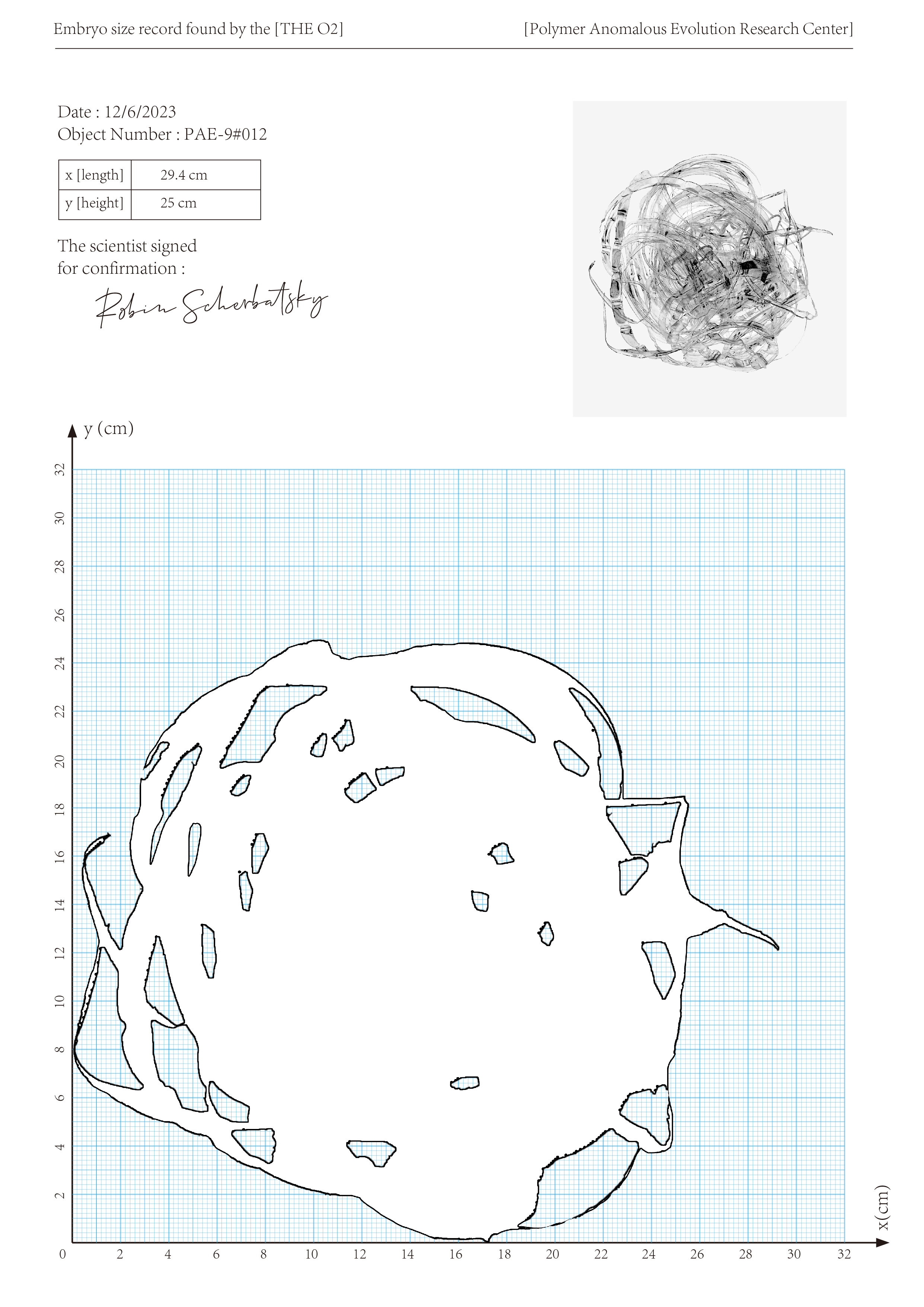PAE-9
Publication Design 07/2023
Archived + Writing + Publishing
Design: Peihan Yao / Yixuan Lin / Yijie Wang / Yikai Bai
The Polymer Anomaly Evolution Research Center (PAE) was established in 1989, to address the pressing social and environmental issues stemming from the widespread abuse and improper disposal of plastic materials. Through extensive and long-term research, PAERC has made significant discoveries regarding the anomalous evolution of polymers in the environment, wherein abused plastics, unable to degrade, undergo a fusion process with microorganisms and other polymers, leading to the emergence of novel, unknown organisms. This study aims to outline the scientific findings and implications of this phenomenon.
PAE conducted a multidisciplinary investigation, employing advanced techniques from polymer science, genetics, microbiology, and environmental studies. The research involved the collection and analysis of polymer samples from various environments affected by resource abuse, including landfills, water bodies, and polluted regions. Through meticulous laboratory experiments, the interactions between plastic substances and microbial communities were examined, along with their influence on the polymer's structural and genetic properties.
The discovery of polymer mutations and the emergence of unknown organisms highlight the complexity and adaptability of biological systems in response to environmental changes caused by plastic abuse. PAE's findings have significant implications for environmental conservation, waste management practices, and public health considerations. Understanding the mechanisms driving polymer mutations and the characteristics of the resultant organisms is crucial for developing sustainable strategies to mitigate the adverse effects of resource abuse.
Future research should focus on elucidating the genetic and physiological mechanisms underlying the fusion process and studying the ecological interactions and potential ecosystem disruptions caused by these unknown organisms. Furthermore, efforts should be directed towards developing effective waste management approaches, promoting sustainable alternatives to plastic, and advocating for policies that address the social and environmental challenges associated with plastic abuse.
By publishing some of PAE’s research, this document attempts to reveal the seriousness of the abuse of material resources and to promote an open discussion about whether what we think is constant is because it is beyond our knowledge and control. In addition to plastic, are there more substances that have mutated and evolved because of environmental destruction, and have an impact on the development of the world?
It is an archive as well as a manifesto, the reinvention and reuse of materials is urgent.
Archived + Writing + Publishing
Design: Peihan Yao / Yixuan Lin / Yijie Wang / Yikai Bai
The Polymer Anomaly Evolution Research Center (PAE) was established in 1989, to address the pressing social and environmental issues stemming from the widespread abuse and improper disposal of plastic materials. Through extensive and long-term research, PAERC has made significant discoveries regarding the anomalous evolution of polymers in the environment, wherein abused plastics, unable to degrade, undergo a fusion process with microorganisms and other polymers, leading to the emergence of novel, unknown organisms. This study aims to outline the scientific findings and implications of this phenomenon.
PAE conducted a multidisciplinary investigation, employing advanced techniques from polymer science, genetics, microbiology, and environmental studies. The research involved the collection and analysis of polymer samples from various environments affected by resource abuse, including landfills, water bodies, and polluted regions. Through meticulous laboratory experiments, the interactions between plastic substances and microbial communities were examined, along with their influence on the polymer's structural and genetic properties.
The discovery of polymer mutations and the emergence of unknown organisms highlight the complexity and adaptability of biological systems in response to environmental changes caused by plastic abuse. PAE's findings have significant implications for environmental conservation, waste management practices, and public health considerations. Understanding the mechanisms driving polymer mutations and the characteristics of the resultant organisms is crucial for developing sustainable strategies to mitigate the adverse effects of resource abuse.
Future research should focus on elucidating the genetic and physiological mechanisms underlying the fusion process and studying the ecological interactions and potential ecosystem disruptions caused by these unknown organisms. Furthermore, efforts should be directed towards developing effective waste management approaches, promoting sustainable alternatives to plastic, and advocating for policies that address the social and environmental challenges associated with plastic abuse.
By publishing some of PAE’s research, this document attempts to reveal the seriousness of the abuse of material resources and to promote an open discussion about whether what we think is constant is because it is beyond our knowledge and control. In addition to plastic, are there more substances that have mutated and evolved because of environmental destruction, and have an impact on the development of the world?
It is an archive as well as a manifesto, the reinvention and reuse of materials is urgent.
cover page
softback
100 x 120MM
16pgs



